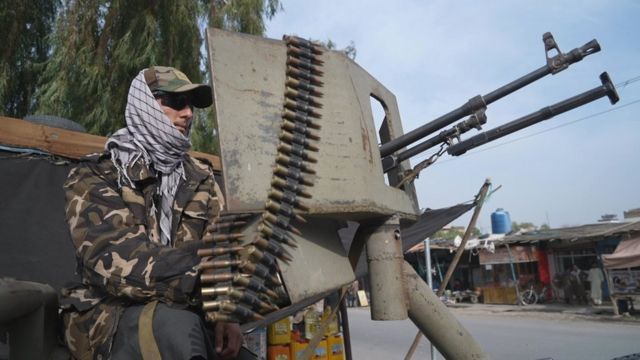
The Taliban’s secretive war against IS
Some have been shot or hanged, some guillotined. Numerous have handwritten notes stuffed into their pockets, criminating them of being members of Afghanistan’s branch of the Islamic State.
No-one claims responsibility for the horrible,extra-judicial killings, but the Taliban are extensively assumed to be responsible. IS carried out a self-murder bombing in August outside Kabul field that killed further than 150 people, and is a fierce rival of the Taliban. The two groups are now engaged in a murky and bloody battle. Jalalabad is the frontline.
Afghanistan is now more peaceful, following the end of the Taliban’s insurrection. In Jalalabad, still, their forces are facing an near-diurnal sluice of targeted attacks. IS, known locally as”Daesh,”is using some of the same megahit-and- run tactics that the Taliban so successfully employed against the former government, including roadside losers and stealthy assassinations. IS accuses the Taliban of being” apostates”for not being sufficiently strict; the Taliban dismiss IS as iconoclastic crazies.
In Nangarhar fiefdom, home to Jalalabad, the head of the Taliban’s intelligence services is Dr Bashir. He has a ferocious character. He preliminarily helped to drive IS out of a small fort it had established in neighbouring Kunar.
Dr Bashir denies any link to the corses left on display by the roadside, but proudly states his men have arrested dozens of IS members. Numerous IS fighters who had been locked under the former government escaped from jail during the chaos girding the Taliban preemption
In public, Dr Bashir and the rest of the Taliban play down the trouble of IS. They say the war in Afghanistan is eventually over, and they’re bringing peace and security to Afghanistan. Anything that undermines that narrative is unpleasant. Dr Bashir goes so far as to claim that IS doesn’t indeed formally live in Afghanistan, despite all the substantiation to the negative.
“The name’Daesh’refers to Syria and Iraq,”he says.”There’s no miscreant group with the name of’Daesh’ then in Afghanistan.”
Rather he refers to the zealots as”a group of serpents who have mutinied against our Islamic government”.
In fact, IS isn’t only formally present in Afghanistan, it has established a specific offshoot or” fiefdom” covering the country,”IS-Khorasan”- using an ancient name for the central Asian region. The group first established its presence in Afghanistan in 2015 and carried out terrible attacks in the following times, but since the Taliban preemption it has launched self-murder bombings in areas of the country its zealots were noway preliminarily seen.
Before this month, IS attacked kirks belonging to the Shia nonage in the northern megacity of Kunduz and the Taliban’s fort of Kandahar.
Dr Bashir, still, insists there’s no cause for concern.”We tell the world not to worry,”hesays.However, God willing, just as we defeated a coalition of 52 countries on the battleground … they will be defeated too,”If a small group of serpents rises up and carries out similar attacks.” Having fought an insurrection war for two decades, Dr Bashir adds,”it is easy for us help a guerrilla war”.
But fears over the growth of IS are participated by Afghans formerly exhausted from times of bloodshed as well as neighbouring countries and the West. American officers have advised that IS in Afghanistan could develop the capacity to launch attacks abroad within six months to a time.
For the moment, IS doesn’t control any home in Afghanistan. The group had preliminarily managed to establish bases in both Nangarhar and Kunar businesses, before being driven out by assaults from the Taliban, as well as Afghan army units backed by American airstrikes. The group has just a many thousand fighters compared to around Taliban members, who are now equipped with American munitions.
But there are fears IS could end up retaining some of the other Central Asian and Pakistani foreign fighters believed to be grounded in the country, as well as disillusioned Taliban members if rival coalitions develop within the group in the future. The US is hoping to continue using so- called”over the horizon” strikes, launched from outside Afghanistan, to target IS. The Taliban still, are bullish about being suitable to take on the mutineers alone.
Numerous members of IS defected to the zealots from the Taliban and the Pakistani Taliban, a linked but separate group.”We know them veritably well, and they know us veritably well,”one Taliban figure tells me, smiling darkly.
In recent days, dozens of IS members have surrendered to Dr Bashir’s forces in Nangarhar. One, a former Taliban member, tells us he grew disillusioned after defecting to IS.
Unlike the Taliban, who have constantly stressed that their only end was to establish an”Islamic Emirate”in Afghanistan, IS do have global intentions, he tells us.
IS”would issue pitfalls to everyone, to the whole world. They wanted to bring their rule to the whole world,”he says. But” words are different from conduct,”he adds.”They aren’t important enough to take control of Afghanistan.”
Numerous Afghans wearily relate to the supplement in IS attacks as the launch of a” new game”in the country. In Jalalabad, it’s not just the Taliban who are being targeted. Civil society activist Abdul Rahman Mawen was driving home from a marriage before this month when markswomen opened fire on his vehicle. His two youthful sons, aged 10 and 12 cringed in the auto as their father was shot dead. IS issued a short statement claiming responsibility.
Speaking from the family’s home, his family, Shad Noor, is despairing.”From the bottom of my heart, when the Taliban took power we were veritably happy and auspicious that corruption, murders, explosions would be canceled,”he says.
“But now we’re realising a new miracle is being assessed upon us, by the name of Daesh.”



Average Rating